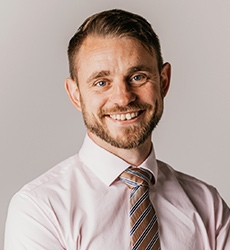Dr Richard Axell
Which NHS and Academic Institutions do you work for?
I hold a full-time contract at University College London Hospital NHS Foundation Trust and an honorary contract at University College London.
What do you like about being a Clinical Academic?
Beyond the typical clinical day job working in urodynamic science, I love the opportunities a clinical academic career pathway has given me. I have had the opportunity to contribute to scientific textbooks, peer reviewed journal articles, scientific review articles, thinktanks, and have been invited to give presentations at international conferences on the theme of clinical measurement. I have been lucky enough to travel as far as San Diego, USA and Sydney, Australia. I have also had the opportunity to contribute to the development and delivery of International Continence Society accredited urodynamics training courses delivered to consultants, registrars, radiographers, nurses and other healthcare scientists.
Can you briefly describe how you became and developed as a Clinical Academic?
After completing my Clinical Scientist training at St Georges Hospital in London I got a substantive post in Clinical Engineering at Addenbrooke’s Hospital in Cambridge. It was here that I first had my eyes opened to the prospects of developing a clinical academic career within healthcare science. After completing a few smaller clinical measurement projects, I was able to successfully apply for PhD funding from the NIHR. After completing my PhD, I moved into a new urodynamics science position at UCLH, London. I have subsequently been awarded an NIHR Clinical Lectureship which has given me the time to take on a senior role with my professional body the IPEM, complete leadership development courses and to help develop the resources for other healthcare scientists at UCLH wishing to develop a career as a clinical academic.
Give one example of where your work has changed practice?
Due to the collaborative nature of cardiovascular research, during my PhD, I dedicated a significant amount of my time to work on a project that helped pioneer Donation after Circulatory Determined Death (DCD) heart transplantation in the UK at the Royal Papworth Hospital. The first DCD heart transplantation was successfully performed in 2015 and the Royal Papworth have now performed in excess of 85 DCD transplantations to date increasing the number of heart transplants performed at their centre by 40%. In September 2020, NHS Blood and Transplant used this pioneering data to launch a national retrieval service for DCD heart transplantation and the team at the Royal Papworth has now used the technique to perform DCD heart transplantation in children.
What advice would you give to a Healthcare Scientist who is an aspiring Clinical Academic?
Try to just say yes if something is going to help you to develop your clinical academic career even if it’s going to take some time to complete outside of the day job.
